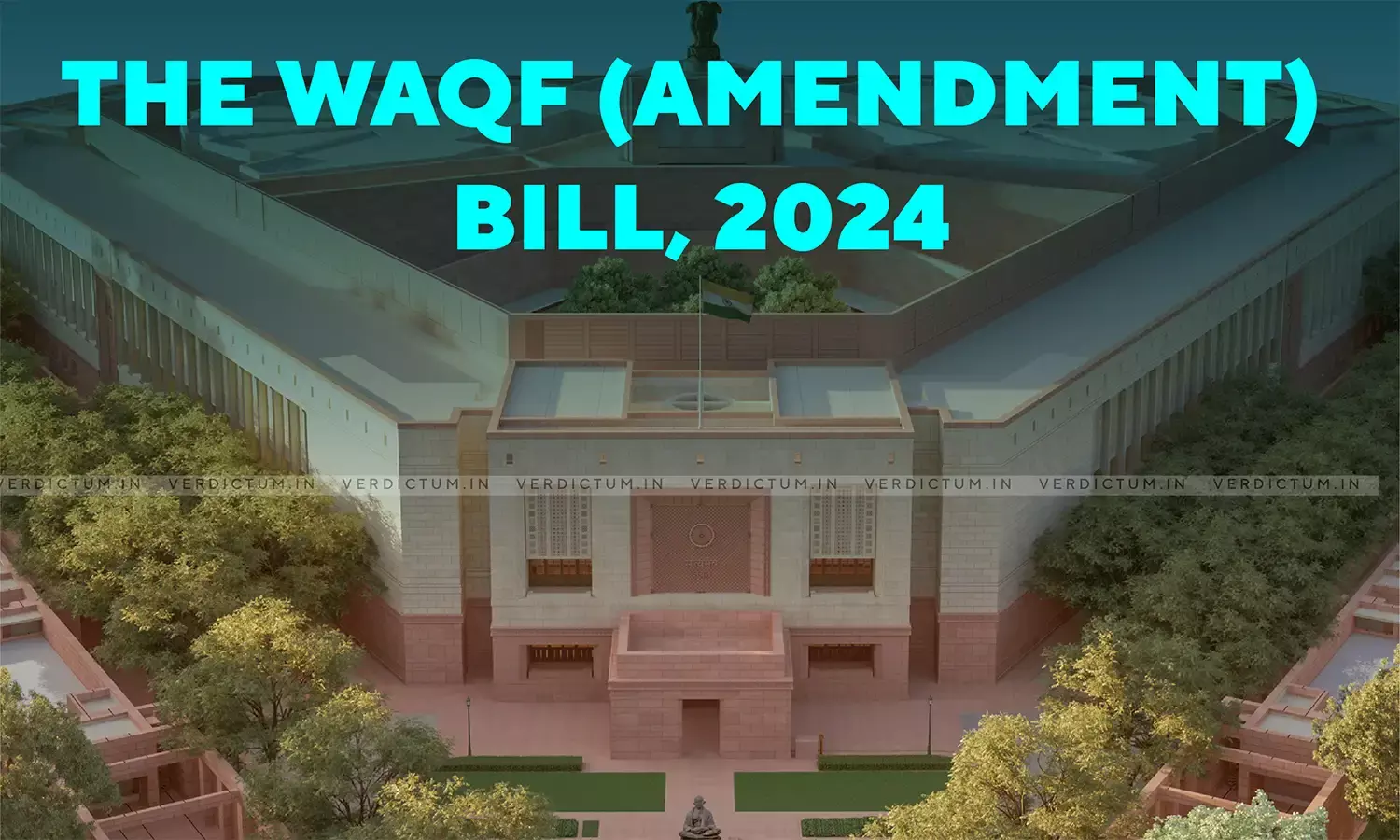Empowering Communities: The Impact Of The Waqf (Amendment) Bill 2024
The Waqf (Amendment) Bill 2024 has emerged as a pivotal legislative measure aimed at reforming the management and utilization of waqf properties in India. This bill is essential for several reasons, each contributing to the empowerment of the Muslim community and the equitable development of society as a whole.
One of the primary objectives of the Waqf (Amendment) Bill 2024 is to improve the administration of waqf properties. Currently, many waqf properties suffer from neglect and mismanagement, leading to significant losses for the community. The amendment proposes to streamline the governance structure, ensuring that waqf boards operate more efficiently.
The bill calls for the establishment of a robust regulatory framework that mandates regular audits and assessments of waqf properties. By enhancing accountability and transparency, the bill aims to maximize the potential of these properties for community development. A well-managed waqf can serve as a source of sustainable income, providing funds for various community initiatives, including education and healthcare.
The bill includes provisions for better financial management of waqf assets. By allowing waqf boards to engage in more diverse investment strategies and partnerships, the revenue generated from these properties can be significantly increased. This financial empowerment can lead to improved educational and healthcare facilities within the community, addressing long-standing socio-economic disparities.
Furthermore, the amendment encourages waqf boards to explore public-private partnerships, enabling them to leverage additional resources for development purposes. This collaboration can result in the construction of community centres, hospitals, and schools, ultimately benefiting a wider demographic and enhancing the quality of life for many.
Education is a cornerstone of community upliftment. The Waqf (Amendment) Bill 2024 emphasizes the establishment of educational institutions on waqf properties, allowing for the creation of schools, colleges, and vocational training centers. This initiative will not only enhance educational opportunities for Muslim youth but also contribute to overall community development, fostering a more educated and skilled workforce.
The bill encourages waqf boards to prioritize educational programs that are relevant to the contemporary job market, including technical and vocational training. By focusing on skill development, the community can better prepare its youth for employment opportunities, reducing unemployment rates and fostering economic independence.
The amendment seeks to provide legal clarity regarding the rights and responsibilities of waqf property stakeholders. By defining roles and responsibilities more clearly, potential disputes can be minimized, and the rights of beneficiaries safeguarded. This legal framework is crucial for ensuring that the intentions of the waqf founders are respected and upheld.
Additionally, the bill proposes the creation of a grievance redressal mechanism to address any issues that may arise regarding waqf properties. This mechanism will empower beneficiaries to voice their concerns and seek justice, thereby fostering trust in the system and ensuring that the rights of all stakeholders are protected.
The Waqf (Amendment) Bill 2024 encourages community participation in the management of waqf properties. By involving local stakeholders and beneficiaries in decision-making processes, the bill fosters a sense of ownership and accountability. This participatory approach ensures that the needs and aspirations of the community are genuinely considered, leading to more effective and relevant outcomes.
Moreover, the amendment proposes regular community meetings where stakeholders can discuss issues, share insights, and contribute to the strategic direction of waqf management. This inclusion not only strengthens community bonds but also enhances the responsiveness of waqf boards to the actual needs of the people they serve.
By addressing key issues such as education, healthcare, and economic development, the Waqf (Amendment) Bill 2024 has the potential to strengthen social cohesion within the broader Indian society. When marginalized communities are empowered, it leads to a more inclusive and harmonious society. The benefits derived from well-managed waqf properties can extend beyond the Muslim community, contributing to the welfare of all citizens.
In a diverse nation like India, fostering social cohesion is vital for national unity. The bill's emphasis on equitable resource distribution and community engagement can bridge gaps and promote understanding among different cultural and religious groups, thereby enhancing social stability.
The Waqf (Amendment) Bill 2024 is not just about managing waqf properties; it is also about harnessing their potential for broader economic development. By effectively utilizing waqf land for commercial purposes, waqf boards can generate substantial revenue that can be reinvested into community projects.
For instance, waqf properties can be developed into marketplaces, recreational facilities, or conference centers, creating jobs and stimulating local economies. This approach aligns with the government's focus on enhancing economic activities at the grassroots level, ensuring that the benefits of growth reach all segments of society.
The Waqf (Amendment) Bill 2024 represents a significant step forward in addressing the challenges faced by Waqf properties and the communities that depend on them. By enhancing management, promoting educational initiatives, and ensuring community participation, this bill has the potential to empower the Muslim community while fostering social equity.
As India continues to strive toward inclusive development, supporting the Waqf (Amendment) Bill 2024 is not just a legislative necessity but a moral imperative for a just society. The potential for economic development, social cohesion, and community empowerment makes this bill a vital tool for building a brighter future for all. Embracing these reforms will not only uplift marginalized communities but will also contribute to the collective progress of our diverse nation.
Author is an Advocate practicing in the High Court of Bombay.
[The opinions expressed in this article are those of the author. Verdictum does not assume any responsibility or liability for the contents of the article.]












